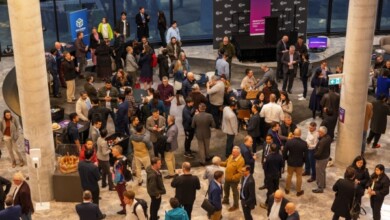Calls to Cap Airbnb’s Impact on Rental Availability
Melbourne, June 17, 2024, Grounded Community Land Trust Advocacy is calling for a cap on the number of Airbnb’s following the release of their Airbnb: From a Housing Problem to a Solution report, which has looked into the impact of short-term rental (STR) on communities across Australia.
“Short term rentals such as Airbnb’s have enjoyed an 81% higher return than investing in the long term rental market” said the report’s author Karl Fitzgerald, Managing Director of Grounded Community Land Trust Advocacy.
“The growth in STRs has been significant, with the equivalent of 74% of new housing supply heading straight towards Airbnb. This has magnified the challenge renters and home buyers face in the never ending housing crisis,” he said.
Key findings
● $584.6m in net profits was enjoyed by STR owners.
● The 11,935 STRs reviewed in the report delivered an average net profit of $48,980 each per annum
● Net returns were 80.9% higher for STRs over LTRs
● STRs in the Whitsundays were most profitable at $60,125 per annum above LTRs
● 74.2% of new housing supply was directed towards STRs across the 13 locales reviewed
● Hepburn Shire, Byron Bay, Apollo Bay and Noosa Heads had more STRs than LTRs (These localities saw STRs consume housing supply at a rate of 118%)
● The concentration rate of STR was extenuated in Apollo Bay (224%) and Noosa Heads (208%) where STRs were more than twice the LTR supply
● STR owners shared in a median $33.6m in economic rents (super profits) per locale
Twelve thousand STR properties were analysed across tier one tourism communities in Hepburn Shire, Mornington Peninsula, Byron Bay, Fremantle, Victor Harbor, Hobart, Noosa Heads, Coolum Beach, Port Douglas, the Whitsundays, Warburton, and Apollo Bay.
The study ranked towns according to the profitability and saturation of STRs to LTRs, alongside the absorption of new housing supply into STRs.
A combination of pressure points was used to calculate the most impacted communities in the study. The top 5 most impacted communities were Warburton, Apollo Bay, Port Douglas, Noosa Heads and Hepburn Shire.
Apollo Bay and Noosa Heads both had twice as much stock on the STR market as the LTR rental market. Warburton had next to no new supply, but STR had accelerated at a dramatic rate, taking away from existing rentals.
Mr Fitzgerald said that Issues of STR’s greatly outweighing LTR rentals was not limited to tourism towns, pointing to the results of accommodation availability across inner-city communities in Melbourne, Sydney and Brisbane also showing the number of Airbnb’s significantly outweighing long-term rentals.
● Canterbury, Sydney – 196 (LTR) to 100+ Airbnb
● West End, Brisbane – 542 (LTR) to 100+ Airbnb
● Moreland, Melbourne – 664 (LTR) to 1000 Airbnb
“The return on investment in STR will see more supply heading that way unless the government takes action and an ‘Airbnb Cap n Trade’ system is implemented to curb the growth,” said Mr Fitzgerald.
The report outlines the advantages of this system over the 90 day cap, with a closed loop system redirecting STR profits towards the funding of affordable housing.
“The number of STRs needs urgent capping, with an auctioning of the remaining licences raising revenue for affordable housing. Over time, the cap on the number of STRs reduces, and licence values increase. In the process, the ‘cap n trade’ system rebalances the advantages of STR investment over LTR investment,” Mr Fitzgerald said.
“Through this STR licensing system, Airbnb could improve its social licence by helping to address the problems at source. The 13 local councils could benefit from a potential $143m in revenue which could then be reinvested into affordable housing.” he said.


